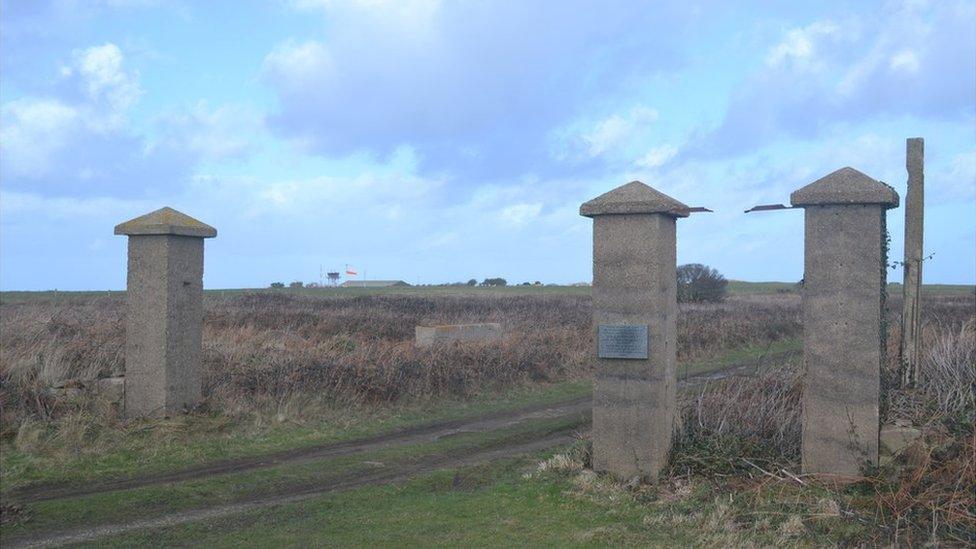Government 'owes apology' over Nazi camps cover-up
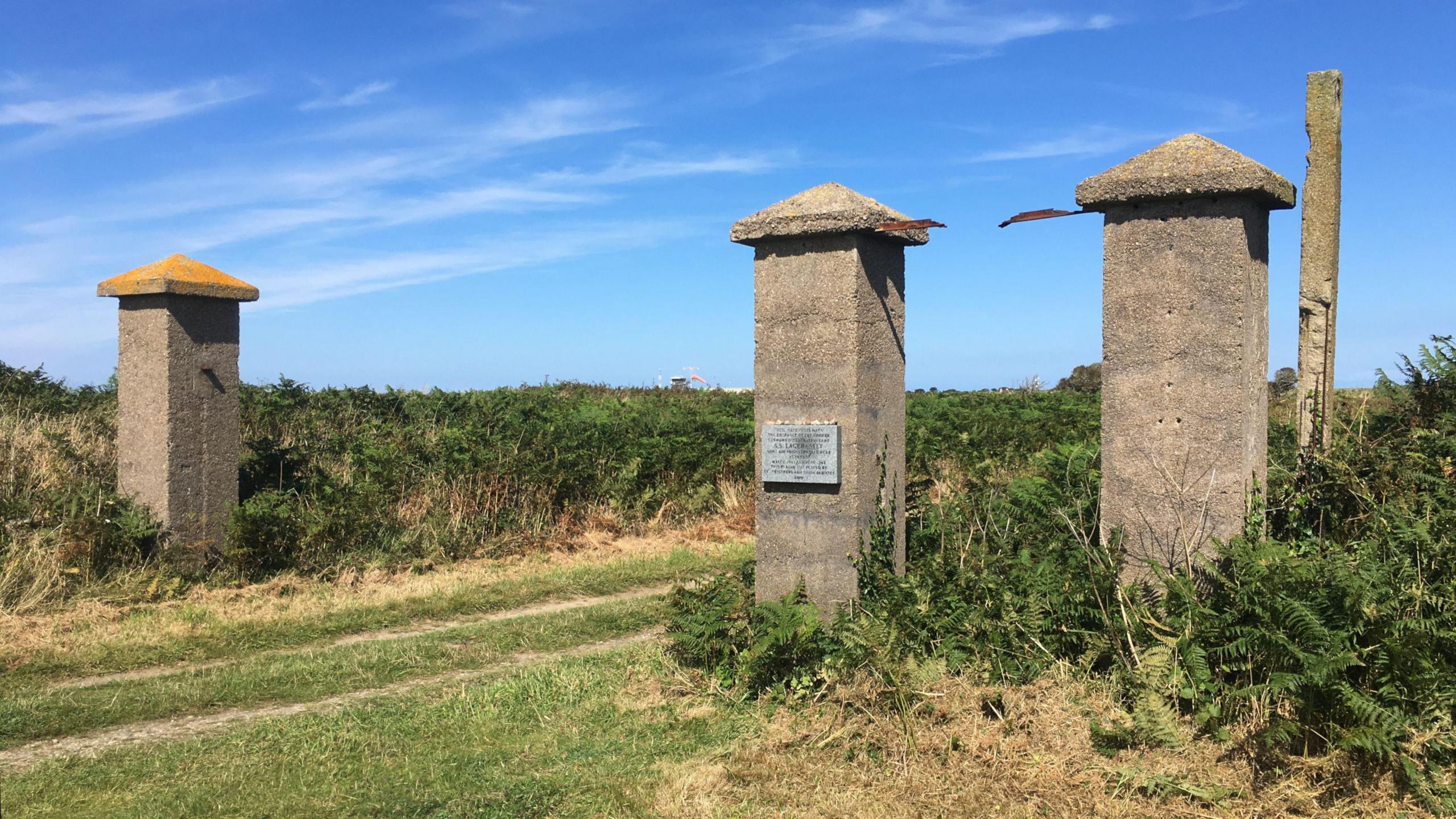
Four labour camps were established in Alderney - named after the German islands Borkum, Helgoland, Norderney and Sylt
- Published
An academic has called for an apology from the British government for a "cover-up" over war crimes perpetrated in the Channel Islands during World War Two.
Prof Anthony Glees found those responsible for inhumane treatment of prisoners at Nazi camps in Alderney were never tried, after their case was transferred to the Soviet Union.
His research - part of a wider review of deaths in Alderney - found the transfer was part of an exchange for those behind deaths of prisoners of war after the Great Escape.
A spokesperson for the Department for Levelling Up, Housing and Communities said it fully supported the objectives of the review.
Prof Glees, an intelligence expert from the University of Buckingham, found responsibility for the trials of the people involved with the four forced labour camps in Alderney was given to the Soviet Union.
This was in part through analysis of a British intelligence officer’s reports - Capt Theodore Pantcheff was the officer with responsibility for looking into the alleged war crimes in Alderney in 1945.
Prof Glees identified that as part of an exchange with the Soviet Union, the Nazi war criminals who executed a number of British and American prisoners of war following their escape were exchanged for his case report on Alderney.
He said: "The British wanted something in return, which was those Nazi guards which had murdered British and American airmen in the Stalag Lug III, immortalized by the film.
"The RAF called the murder of the escapees one of the greatest war crimes ever committed, they were rounded up by the Gestapo and then all of them ruthlessly executed."
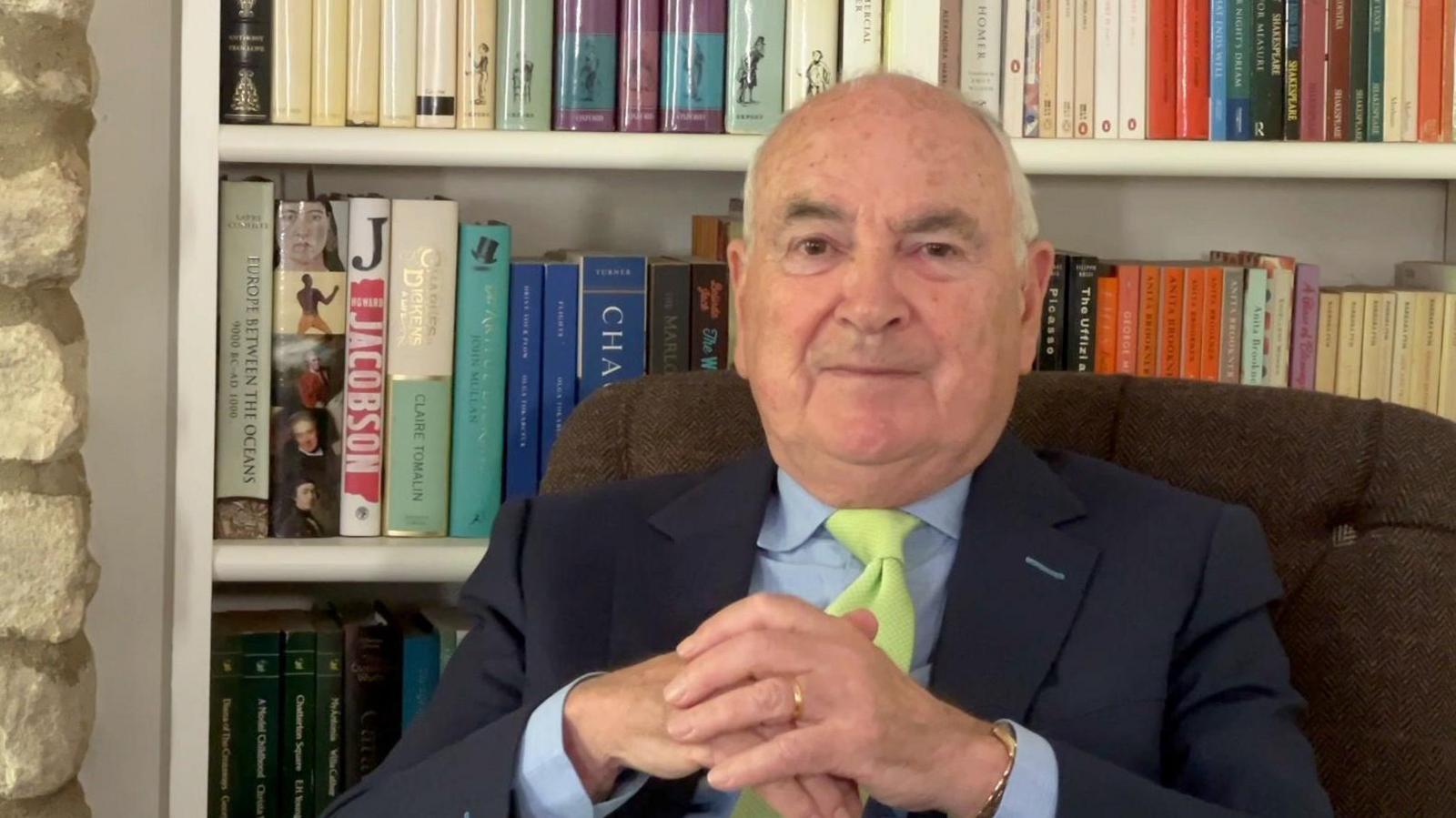
Prof Anthony Glees said it was not clear why war crime trials were not held
During his investigations, Prof Glees uncovered more details about how prisoners in the camps in Alderney were treated: "People were killed, beaten up, crucified, slaves were required to build fortifications under conditions of appalling brutality, they were concentration camps.
"The Germans who ran these were appalling, sadistic war criminals – there’s no question about that."
In 1943 the governments of the United Kingdom, United States of America and the Soviet Union signed the Moscow Declaration, which set out the rules for dealing with alleged war criminals.
Prof Glees said it created a distinction between major and minor war criminals: "Major war criminals, Hitler and Himmler, had no territorial limits. But then you had lesser criminals whose crimes were defined to very specific areas."
The leading Nazis who survived the war were tried at the Nuremberg War Crimes Tribunal.
Prof Glees said this agreement lead to "a foggy situation" in the British island.
"Everyone taken to Alderney was a slave labourer, none were British subjects, maybe an odd Brit, but the victims were Russians, Soviet citizens Poles, 700 Jews from France, red Spaniards who fought against Franco, and people from North Africa," he said.
"The idea of returning them to the place of their war crimes, was easy to Alderney, but them being tried by their people was more complicated, as none were British."
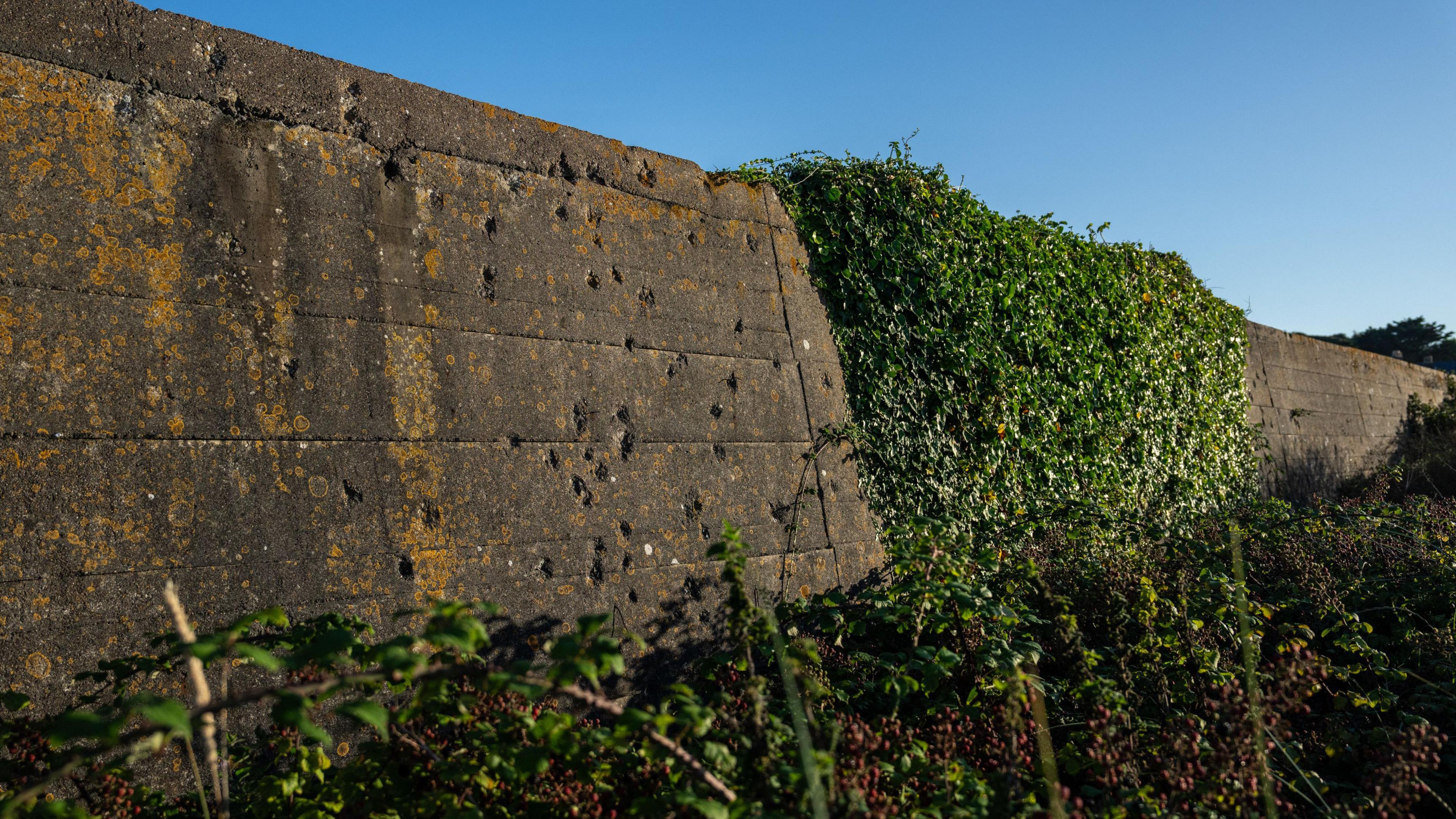
The inquiry aimed to end conspiracy theories about this period of history by establishing as clear a number of deaths as possible
Prof Glees said in 1947 "the French asked the British government, Labour at the time, for info about the Alderney case".
He said the French authorities wanted to try those responsible for the brutal treatment of French Jews sent to Alderney.
The professor said: "The French wrote to the Brits asking for papers and a list of the perpetrators and the Brits said all papers were sent to Russia, we have no records, if you want to find out more said ask the Russians.
"That was a lie and a cover up as the Pantcheff report was an official British document."
His research found no evidence of a trial in the Soviet Union or why one was not held.
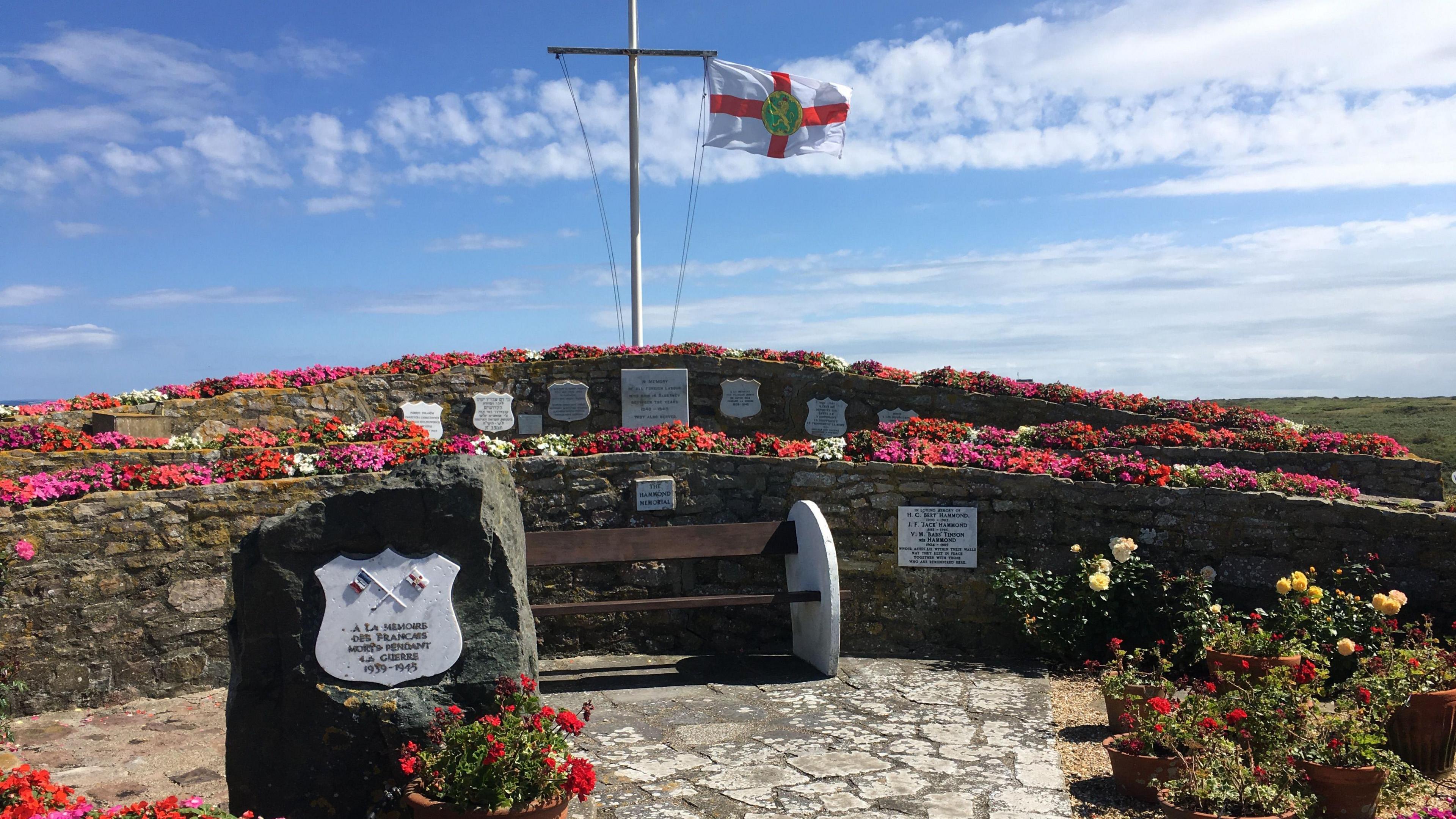
Plaques in Russian, Hebrew, Polish, French and Spanish were erected on the Hammond Memorial by Alderney residents to remember the slaves and forced labourers who died
Prof Glees said: "I think it is fair to say the British government should apologise for covering up the fact that the case was given to the Russians, the fact when the French asked about it, they said they didn't know about it.
"Finally, they should apologise for the fact that it's only through Lord Pickles' review that we've discovered the Russians did nothing with it."
He added: “We don’t quite know why they did nothing with it. We do know British authorities were very upset they did nothing, could be that Russians were fixated on the major criminals being tried."
Prof Glees said Attorney General Sir Hartley Shawcross "was furious and said if the Russians won’t try these criminals, we need to get on and try them ourselves".
He said: "The response came back that under the terms of the war crimes treaty with the Soviet Union, no British military tribunal was permitted to try a German for atrocities against a Soviet."
A spokesperson for the UK's Department for Levelling Up, Housing & Communities said: "We fully support the objectives of this report and are grateful for the work undertaken by Lord Pickles and the review panel in scrutinising the evidence and shedding valuable light on the truth of the occupation of Alderney.
"A full and honest account of what happened on the Nazi occupied island of Alderney will provide dignity and justice for those who suffered and died - and ensure we never forget."
The BBC has approached the Russian government for comment.
Follow BBC Guernsey on X (formerly Twitter), external and Facebook, external. Send your story ideas to channel.islands@bbc.co.uk, external.
Related topics
- Published22 May 2024
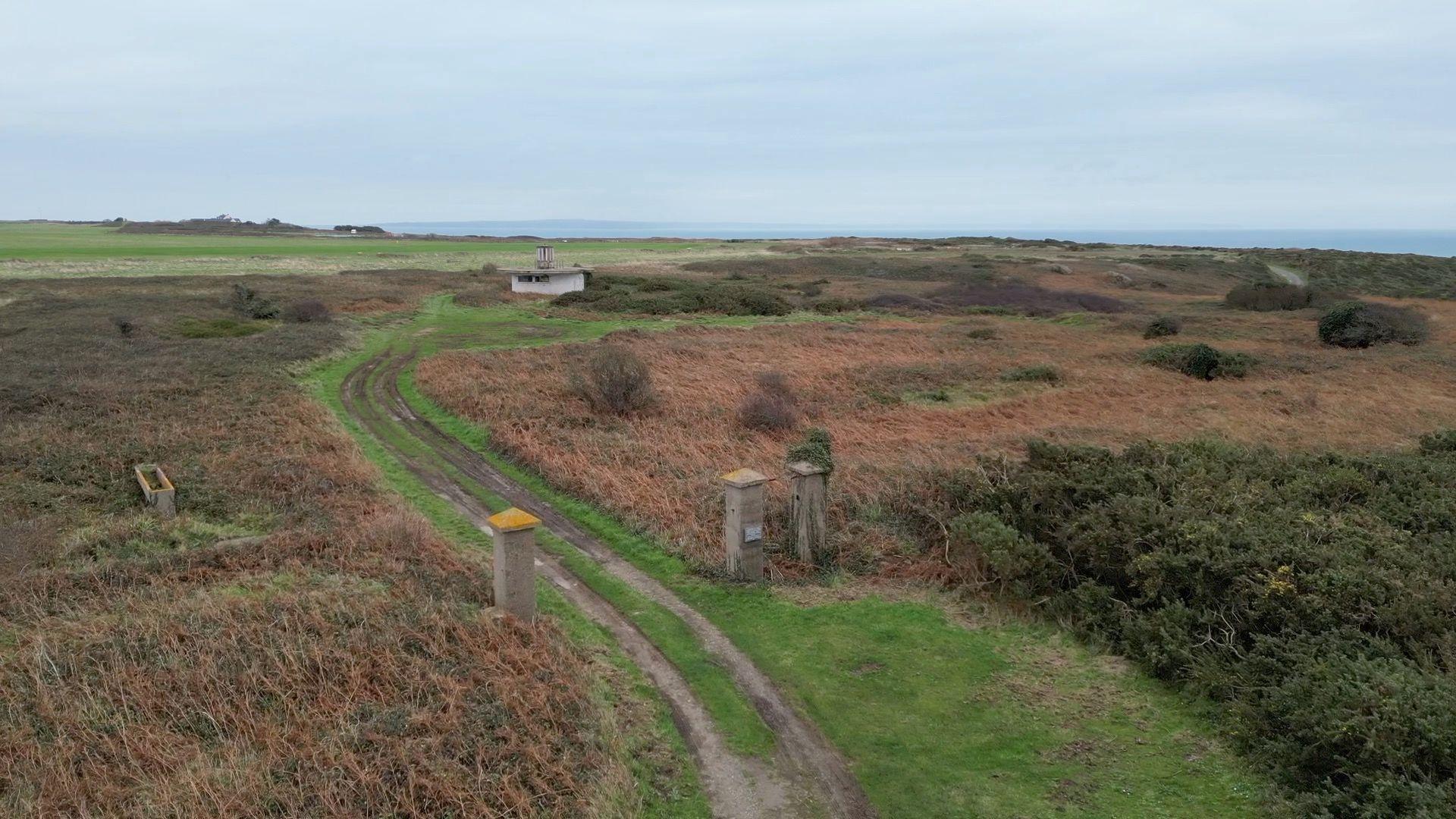
- Published21 May 2024
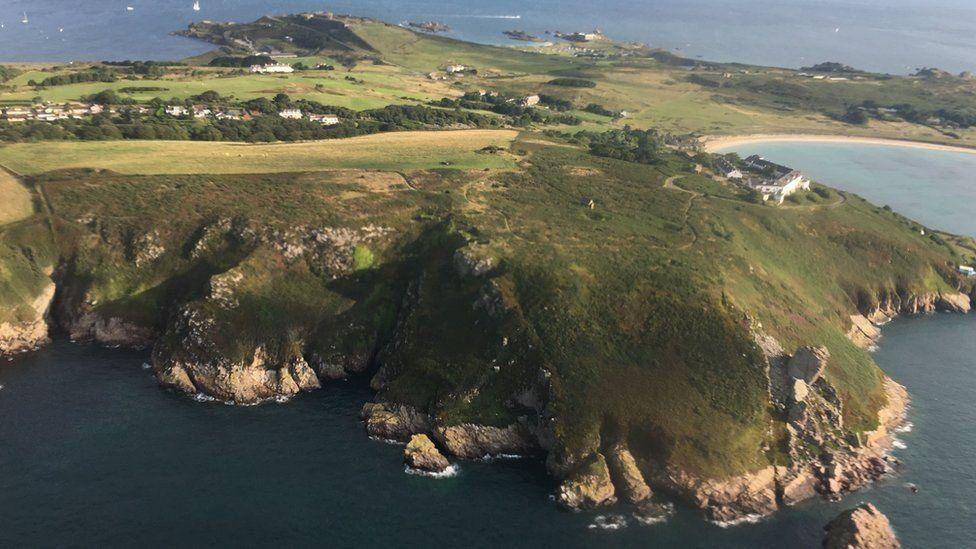
- Published21 May 2024
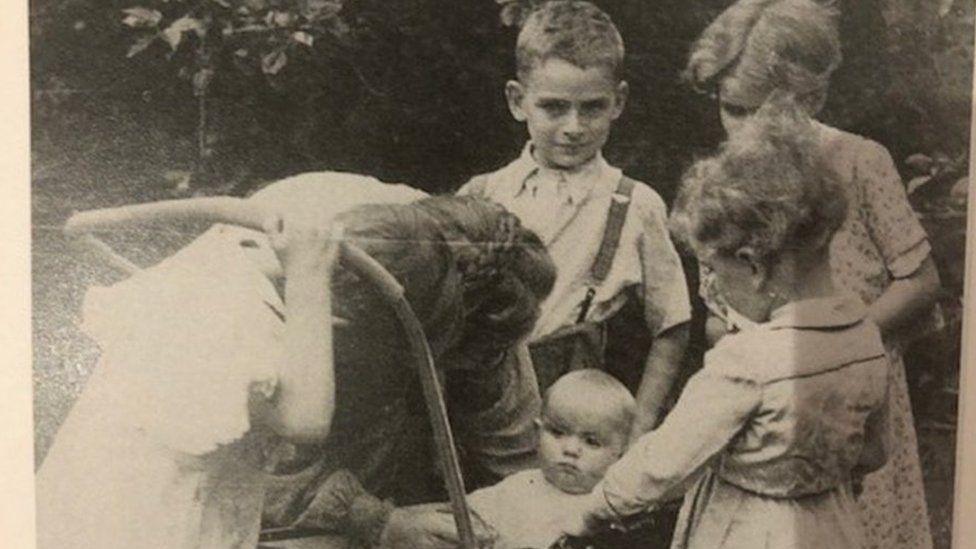
- Published24 July 2023
